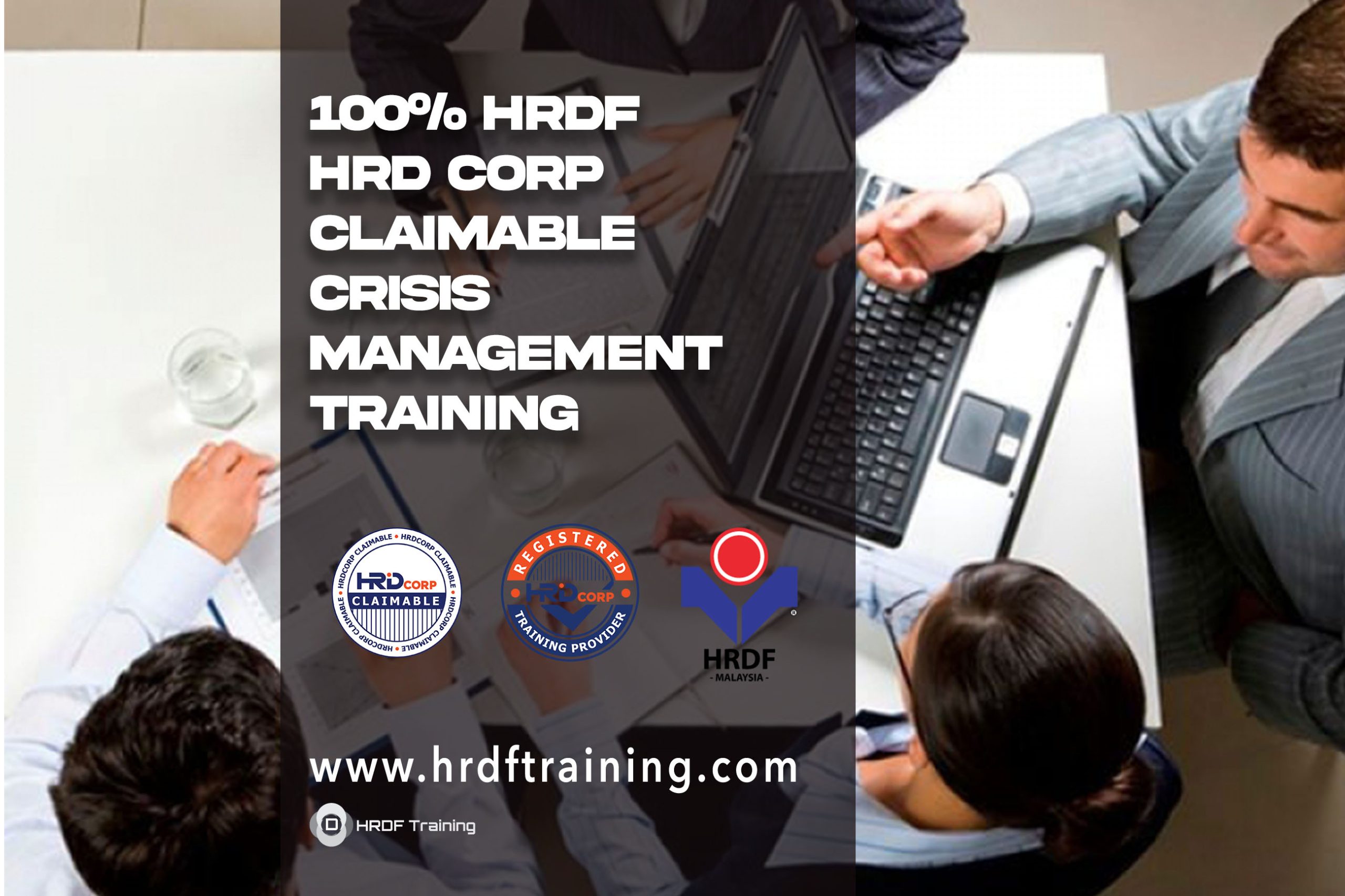HRDF HRD Corp Claimable Crisis Management Training
Crisis Management – HRD Corp Claimable – Course Flyer pdf
The management of crises needs to be done effectively in order to forestall the occurrence of any incidents or unexpected situations that may arise. If the organization, its owners, and its stakeholders do not make preparations for an emergency reaction in the event of incidents, emergencies, or crises, the incidents in question will escalate to the critical level or become a potential crisis. The participants and the organizations that they represent would benefit greatly from attending this training course, which is why it has been designed specifically for that purpose. The participants will gain an understanding of how to establish strategies for crisis management by becoming completely prepared even before the time of the crisis. Participants will gain a great deal from a course that teaches them how to evaluate occurrences and devise appropriate reaction plans if the course is designed properly. In addition to subjects in HRDF HRD Corp Claimable Crisis Management Training, participants will gain abilities in crisis communication as well as problem-solving strategies and procedures that are applicable to each and every conceivable case.
Prepare for, anticipate, respond to, recover from, and learn from adverse situations that threaten an organization’s people, reputation, physical assets, operational continuity, natural environment, regulatory compliance, or financial performance. Successful crisis and incident management is about protecting what your organization values by preparing for, anticipating, responding to, recovering from, and learning from adverse situations.
An inadequate or ineffective response to a crisis or incident can compound and exacerbate an already inherently difficult and stressful situation, with potentially disastrous long-term effects on the organization’s reputation, brand, and standing in the eyes of employees, customers, partners, suppliers, industry peers and bodies, government, regulators, and the media. These effects can have a negative impact on the reputation, brand, and standing of the organization. In today’s business world, senior managers at companies might individually face substantial liabilities as well as penalties for their careers if they make questionable judgments or fail to effectively manage a crisis.
Objectives, Boundaries, and Anticipated Outcomes
Our training is based on best-practice recommendations, and it is supplemented with real-life lessons that we have learned from our practical experience in the management of issues, emergencies, crises, and crisis communication. The principles, concepts, methods, techniques, and instruments of crisis and incident management are discussed, with a primary emphasis placed on the knowledge and abilities that are necessary to effectively respond to and recover from a crisis or event.
Participants are given the ability to:
- A crisis or incident should be brought under control as quickly as feasible.
- Maintain clear and effective communication both within and outside the organization.
- You should have the confidence that comes from having structures, roles, and responsibilities that are all well-defined and understood.
- Create a better understanding of the current situation through the management of information and cooperative effort.
- Make use of decision-making and action-driving process that is transparent and well-rehearsed.
- Maintain composure while guiding teams through trying circumstances.
- Always keep detailed records of your actions and judgments, including both the known facts and any assumptions you may have.
- Gain wisdom from past errors and implement necessary course corrections to stop them from happening again.









